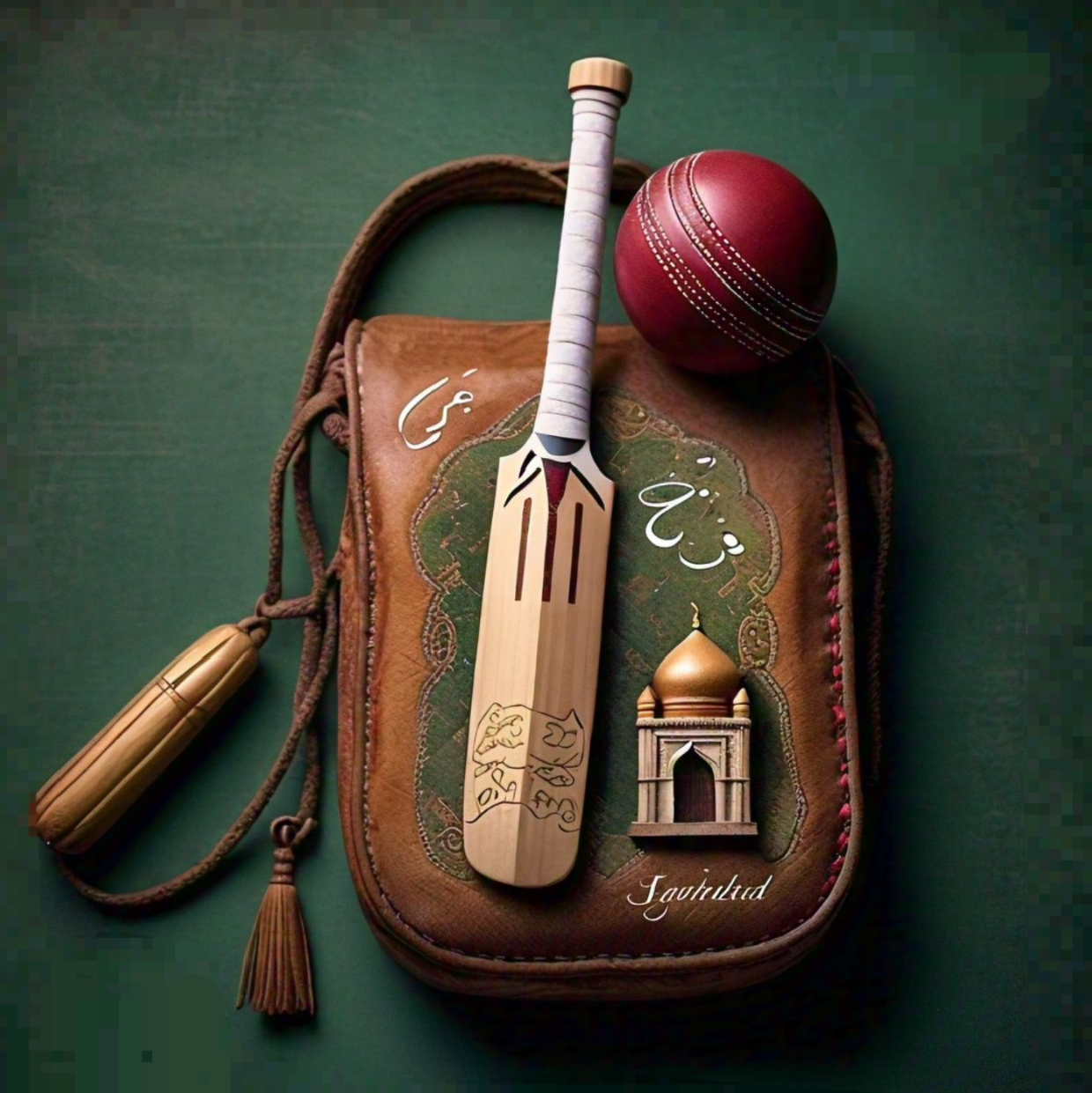Before a building is built, weeks are spent laying its foundation. The ground is broken and upon it is constructed a bed of concrete that would later serve as the weight-bearing base. The tougher the foundation, the more chance the building stands in the face of disaster. If the foundation is built with prudence and precision, the building remains unmoved even when shaken with quakes of the highest magnitude.
One of the many, and in this case the most focal, ways Islam differs from other ‘religions’ is that it is a complete set of beliefs and practices that make it less of a religion per se and more of a lifestyle. The relationship between the two (belief and practice) is that of a building’s hidden foundation and the erect visible structure. Naturally, in comparison, more importance is given to the belief system because it governs the practice believers exhibit in accord with what lies within. To this effect, Imam Abu Hanifa reportedly said, “To understand the fundamentals of the religion (beliefs) is more virtuous than understanding the ancillary rulings.”[1]
The building of Islam stands upon the fundamentals of Tawheed. It is the root from which stems the majestic tree with its sprawling branches shading the world and its people from the evil within them and outside. The faith that the Absolute One True God -Al Ahad- and no one else merits worship and no one other than Him possesses any of His attributes flows through our belief system like the network of vessels that touch every part of a human body giving it life. All actions are judged on this threshold and any act disregarding this cornerstone of our faith is rejected.
Acts standing in direct opposition to Tawheed constitute Shirk. To understand what Divine Oneness is one must know what it is not. An amusing incident in the time of Umar ibn al Khattab (ra) shows how the knowledge of what is not to be done is as important as the information on what is. Someone spoke highly of a man in the presence of Umar ibn al Khattab (ra) by praising his pious deeds and that ‘he did not even know what a sin is’. Umar (ra) retorted, ‘Then, he will fall into sin (because he did not even know what it is).’[2] The dismal intellectual condition of Muslims around the world, and more specifically Indian Muslims, can be enunciated in the previous scene of Umar ibn al Khattab’s (ra) life.
The herd mentality of Muslims without independent enquiry into the Islamic soundness of their actions is not a phenomenon of the new age. Many unbelievers in the time of our Prophet (saw) and before him refused to believe in Allah’s (swt) word because it stood in contradiction to what their forefathers had done.[3] Much the same, many Muslims of the subcontinent have incorporated cultural practices in their lifestyle inherited and adopted from their forefathers believing them to be genuine because that is what they were ‘taught by their parents or local Maulvis.’ Many practices are being followed without the slightest idea that they do not hold standing in Islam and are repugnant to its very tenets.
Whether they be as routine as women covering their heads upon hearing the Adhan or as exigent as the popular notion that ‘love for one’s country is one-half of Imaan’[4], the misconceptions run amok with untainted beliefs cowering in the corner. The concept of Tawheed has been reduced to worshipping Allah (swt) as one deity five times a day. The reliance on beings and conceptions other than Allah (swt) has birthed several demigods for the Indian Muslims with only the absence of their prostration before them.
One such god that towers over others for Indian Muslims is the nation. Described by Iqbal as the biggest of the latest entities revered by people, it entails a demand for loyalty to such an extent that it overtakes submission to one’s faith. Suddenly, the economic development and the superficial needs of a country become more pressing to its citizens than their brothers’ deaths and suffering. Whether it be violence against Syrian refugees in Turkey, the ‘burden’ of Afghan refugees on Pakistan, or the continuing hypocrisy of the Arabs in countless immeasurable ways, hyper-nationalism is everywhere and such is its curse.
For Indian Muslims, however, there are two options graciously granted by their fellow citizens: a) Speak up for Muslims in their country and others and be labelled ‘Pakistani’ or b) Stay quiet or even support others in ridiculing Muslims of other countries and still be called ‘Pakistani’ when the slightest inconvenience occurs. This confuses the Indian Muslim who spends his nights and days proving his loyalty to his overlords. This is his reward for pushing to the curb his Muslim brothers and sisters to appease a citizenry that does not see them as their own and vilifies them on the first chance presented.
A demonstration of this hatred was exhibited recently when India won the 2024 ICC T20 Men’s World Cup. Mohammad Siraj, a member of the Indian squad for this year’s tournament, was heavily mocked for thanking ‘Allah Almighty’ for India’s win. The many insults included: ‘This is the victory of Team India and not Allah’, ‘If Allah had done this, then Pakistan would have won the World Cup, not India’, and even ‘Stop spreading this jihad or you will not get a place even among the extra players.’[5] This is not the work of a fringe group or people paid especially for this task. Anti-Muslim or Islamophobic rhetoric is now the mainstream in India. Despite this, the chest-thumping of Indians was at an all-time high with no regard to the overt discrimination against Muslims in the country.
The sport of cricket which was once a tool in the hands of Indians to beat the English in their own game has now become a symbol of hyper-nationalism inflated to a status parallel to loyalty to the nation. The game has colonial (and communal)[6] roots in India but today it has been reduced to an instrument of discrimination. At the receiving end of this discrimination remains the vulnerable Indian Muslim. Ironically, this vulnerable community deliberately participates in its festivities like a lamb to the slaughter.
Institutions have power over one’s psyche as long as that power is readily given to them by the individual. An institution deemed unacceptable by Islam will never serve the Muslims and belief in its ultimate goodness would lead to nothing but destruction, at worst, and disappointment, at best. The Indian Muslim needs to realize the intensity of the problem surrounding him and open his eyes to it. The first step to change is the realization that change is needed.
Any path embarked on that takes one away from Allah (swt) only has ultimate failure as its destination. True believers shine in a crowd like a jewel among mean rocks and are picked on. Taking this struggle and adorning their chest with it as a badge of honour will be a testament to the struggle of prophets and every person who had courage when surrounded by cowards. It is a testament to those whose love for and submission to Allah (swt) exceeded the love for the world he lived in and the desire to be accepted by its people. It is Allah’s, the loving God’s, promise that He will never abandon the people who put their trust in Him above other ‘helpers’. That is Tawheed, the very heart of Islam.
[1] Dr Hasan Mahmud al Shafi, al-Madkhal ila Dirasa Ilm al Kalam, p.14
[2] Dr Muhammad Tahir ul Qadri, The Book on Divine Oneness, p. 21
[3] Surah Baqarah, verse 170; Abu Talib, uncle of our Prophet (saw) among others refused to accept Islam for this reason.
[4] ‘Hubbul Watan Minal Iman’ popularly ascribed to the Prophet (saw) is constituted by scholars as ‘fabricated’ and found in none of the early works of Hadith.
[5] Mohammad Siraj trolled for ‘Thank You Almighty Allah’ tweet… available: https://www.siasat.com/mohammed-siraj-trolled-for-thank-you-almighty-allah-tweet-after-t20-wc-final-3053411/#google_vignette
[6] Communal matches took place in Bombay that were attended by thousands of people. They were later stopped on the urge of BCCI because their popularity overtook the Ranji trophy.


1 Comment
Nice Article